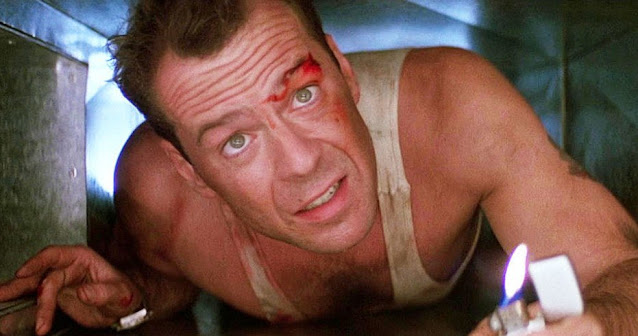How Charles Webb Came To Write "The Graduate"
Author Charles Webb wrote his first novel, The Graduate, in his final year of college. “People ask whether The Graduate was autobiographical. It was,” said Webb. “There are parallels between Fred and me, and Ben and Elaine – the young lovers in the book are battling convention, and the parents in the book have a lot in common with our parents. But the details are changed.”
“We met at college,” he continued. “I'd seen one of her drawings before we met, and thought, ‘I have to meet this person.’ Our first date was in a graveyard. I fancied myself as a connoisseur of gravestones. We were like the Addams family. We soon formed a mutual protection society.”
 | |
|
Webb’s future wife, Eve Rudd – who later changed her name to Fred – recalled, “We met for the first time at a Halloween party. We were both on the sidelines, and right away we gravitated towards each other. Charles had seen one of my drawings before we met. It was called ‘Two Nuns in the Cold.’ I had a secret way of finding out whether I was interested in someone. I'd ask them, ‘Have you ever heard of Ring Lardner?’ – who I thought was the funniest writer I'd ever read. Charles was the only one who ever had. I loved him totally at that point.”
The college sweethearts were married in 1962, one year after Webb graduated from Williams College. They had to wait a year to get married because Fred’s family sent her to live with an aunt in California in an effort to break up the relationship. “I came from suburban California,” said Webb. “My father was a heart specialist who died of a heart attack. Her parents were prep school teachers and she grew up in a small town. Neither of us felt very ‘at home’ at home. Despite that, we married in the chapel of the school where her parents taught. Our wedding bowed to the forces of convention – like Elaine and Benjamin's.”
 |
| Katharine Ross and Dustin Hoffman as 'Elaine' and 'Benjamin' in The Graduate |
Webb began the novel in part to express some of the angst he felt toward his family, and also to win the favor of his mother. “She was always reading books, so I thought I’d see if I could write one,” he said. “I was always looking for crumbs of approval from her. But it didn’t work – she was a very disapproving person.”
When the novel was published in 1963, Webb brought it home for his family to read. “My father had no idea what to expect when he read The Graduate,” said Webb. “He just went very quiet.” Fred recalled, “His father was furious. I remember Charles was home for the summer, and his dad came in and threw the novel on the table, and said, ‘This is crap.’ It hurt Charles's feelings terribly. Both families highly disapproved of the book, because it was so spot-on about the conspicuous consumption, the elitism, the snobbery. Charles really made a statement with it.”
“My father’s attitude towards The Graduate was illustrative of the way he was,” Webb said. “When the book came out, he was appalled that I could have brought such shame on the family. Then, when the film was a hit, he kept going, ‘That’s my boy!’ It's interesting that both sets of parents were turned off by the book, yet when it became a money-making movie, that was another story.”
Charles Webb and his mother-in-law were never sexually involved. She couldn’t stand him, and regarded him as a very unsuitable candidate to marry her daughter. However, Webb suspects that an incident where he was passing her bedroom door and glimpsed her stepping naked out of the shower might have been the catalyst that inspired her character. “I don't know if my mother enjoyed being compared to Mrs. Robinson, or whether she was horrified,” said Fred. “I never asked her. I was very disaffected from my family.”
 |
| Charles Webb and Fred in the early '90s |
Charles Webb said that the semi-autobiographical aspects of his novel were never a problem in his marriage. “To be honest, Fred's never worried about the Mrs. Robinson thing,” he said. “The thing that bothered her most is that the character of Elaine is wimpy and conventional. That chafed. There's not been a lot that is conventional about our relationship.”
“I've never felt quite comfortable about money,” Webb admitted. “I got $20,000 for The Graduate, and I signed the copyright over to the Anti-Defamation League. I declined an inheritance from my father. In the 1960s, I gave a house away in Massachusetts. It felt like a burden, so I donated it to a bird charity. Fred and I have never argued about money. We're in agreement on the basic issues.”
 |
| Fred and Charles Webb in 2000 |
His wife concurred. “After our wedding, we sold the presents back to the guests,” she said. “We were living in a kind of a shack by then. It was hilarious – the cupidity with which they bought it back! We were so thrilled to be rid of it all!” For Webb, “It didn’t feel like such a big deal at the time. There was no great principle involved. We just felt more comfortable living a fairly basic lifestyle.”
According to Charles Webb, the best things in life are free. “My life would have been no different if I hadn't written The Graduate, but I can't even speculate what it would have been like if I hadn't met Fred.”
Carolyn Lumsden, “No Plastics for Graduate Author,” Boston Globe, 8/25/88
Richard Leiby, “The Dropout,” Washington Post, 12/20/92
Adrian Turpin, “How We Met,” The Independent, 4/8/01
John Preston, “Post Graduate Fiction,” Sunday Telegraph, 5/27/07


Comments